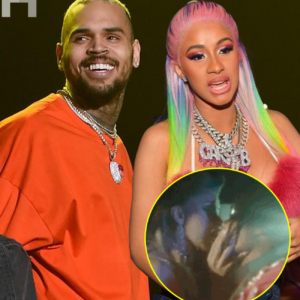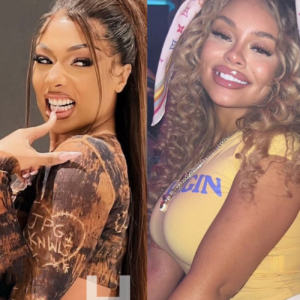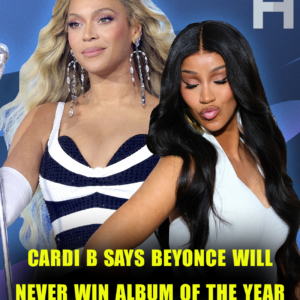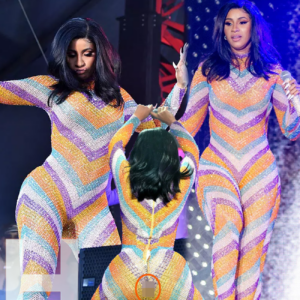Exposing Hollywood’s Shadow: Black Artists and the Struggle for Fair Treatment
In the corridors of power and influence that weave through Hollywood, whispers of injustice have long lingered, casting shadows on the glitz and glamour of the entertainment industry. Recently, voices once silenced have risen in unison, led by prominent figures like 50 Cent and Cat Williams, shedding light on the systemic inequities faced by black artists striving to carve out their place in Tinseltown.
The conversation, ignited by Taraji P. Henson’s revelation about her near departure from the Oprah-produced remake of “The Color Purple,” has sparked a wildfire of discourse. Henson’s candid admission, coupled with 50 Cent and Cat Williams’ vocal support, has thrust the issue of fair compensation and equal opportunities for black talent into the forefront of public consciousness.
Contrary to popular belief, both 50 Cent and Cat Williams vehemently assert that this is not a matter of race but rather a battle between what Cat describes as “God’s side and the other side.” Their stance, rooted in the belief that systemic forces operate beyond the realm of racial divides, challenges the industry’s status quo.

The narrative gains traction as instances of alleged mistreatment and exploitation come to light. From Monique’s accusations of blackballing by Oprah and Tyler Perry to Ludacris’ clash with Oprah over his lyrics, a pattern emerges—a pattern of powerful figures wielding their influence to suppress dissent and maintain the status quo.
At the heart of the matter lies the question of integrity and accountability. Are Hollywood’s elite truly champions of diversity and equality, as they often proclaim, or are they complicit in perpetuating a system that favors profit over principles?
For Taraji P. Henson, the disillusionment was palpable as she recounted her ordeal of battling for fair compensation. Her experience, echoed by countless others, exposes the stark reality that fame and accolades offer little protection against exploitation.
But amidst the sea of discontent, a beacon of hope emerges. Figures like 50 Cent and Cat Williams refuse to be silenced, using their platforms to amplify the voices of the marginalized and hold the powers that be accountable.
As the conversation unfolds on social media and beyond, the call for change reverberates. It transcends the confines of Hollywood, resonating with anyone who has ever felt marginalized or disenfranchised.
In the end, it’s not just about black versus white or rich versus poor—it’s about justice, integrity, and the fundamental principles of fairness. As Cat Williams aptly puts it, it’s about choosing which side of the divide we stand on—the side of righteousness or the other side.
The road ahead is fraught with challenges, but with voices united and spirits unyielding, there is hope for a future where talent is celebrated, diversity embraced, and justice prevails.
In the corridors of power and influence that weave through Hollywood, whispers of injustice have long lingered, casting shadows on the glitz and glamour of the entertainment industry. Recently, voices once silenced have risen in unison, led by prominent figures like 50 Cent and Cat Williams, shedding light on the systemic inequities faced by black artists striving to carve out their place in Tinseltown.
The conversation, ignited by Taraji P. Henson’s revelation about her near departure from the Oprah-produced remake of “The Color Purple,” has sparked a wildfire of discourse. Henson’s candid admission, coupled with 50 Cent and Cat Williams’ vocal support, has thrust the issue of fair compensation and equal opportunities for black talent into the forefront of public consciousness.
Contrary to popular belief, both 50 Cent and Cat Williams vehemently assert that this is not a matter of race but rather a battle between what Cat describes as “God’s side and the other side.” Their stance, rooted in the belief that systemic forces operate beyond the realm of racial divides, challenges the industry’s status quo.
The narrative gains traction as instances of alleged mistreatment and exploitation come to light. From Monique’s accusations of blackballing by Oprah and Tyler Perry to Ludacris’ clash with Oprah over his lyrics, a pattern emerges—a pattern of powerful figures wielding their influence to suppress dissent and maintain the status quo.
At the heart of the matter lies the question of integrity and accountability. Are Hollywood’s elite truly champions of diversity and equality, as they often proclaim, or are they complicit in perpetuating a system that favors profit over principles?
For Taraji P. Henson, the disillusionment was palpable as she recounted her ordeal of battling for fair compensation. Her experience, echoed by countless others, exposes the stark reality that fame and accolades offer little protection against exploitation.
But amidst the sea of discontent, a beacon of hope emerges. Figures like 50 Cent and Cat Williams refuse to be silenced, using their platforms to amplify the voices of the marginalized and hold the powers that be accountable.
As the conversation unfolds on social media and beyond, the call for change reverberates. It transcends the confines of Hollywood, resonating with anyone who has ever felt marginalized or disenfranchised.
In the end, it’s not just about black versus white or rich versus poor—it’s about justice, integrity, and the fundamental principles of fairness. As Cat Williams aptly puts it, it’s about choosing which side of the divide we stand on—the side of righteousness or the other side.
The road ahead is fraught with challenges, but with voices united and spirits unyielding, there is hope for a future where talent is celebrated, diversity embraced, and justice prevails.
Watch video below:
News
Megan Thee Stallion hilariously puts her derriere in her boyfriend Pardison Fontaine’s FACE as he plays video games, then he facepalms and…. (H)
Megan Thee Stallion shared a series of racy new photos documenting her more intimate moments with boyfriend Pardison ‘Pardi’ Fontaine on Saturday. In one hilarious shot, the rapper can be…
Cardi B BREAKS SILENCE on Romance With Chris Brown after Breaking up with Offset
Cardi B and Chris Brown: Rumored Romance Sparks Speculation Celebrity gossip columns are abuzz with rumors surrounding rapper Cardi B and controversial artist Chris Brown. Speculation has…
Latto Accepts Megan Thee Stallion’s Challenge And Twerks From Every Angle, Leaving The Internet Stunned And Amazed
Latto had the people talking. Latto is currently one of the biggest and best women rappers in the game. Overall, she has been coming for the throne,…
Cardi B Calls Beyonce A Failure And Says She Will Never Win Album Of The Year. Here Is What Happened
Understanding Cardi B’s Comments on Beyoncé: Context Matters Recently, headlines swirled regarding Cardi B’s supposed critique of Beyoncé, labeling her a failure and suggesting she’d never win…
Cardi B Offers $50m To Anyone Who Can Help Reverse Her BBL After It B#rst On Stage & Embarrassed Her
Cardi B’s $50 Million Offer Sparks Debate on Plastic Surgery In a surprising turn of events, international superstar Cardi B recently made headlines by offering a staggering…
KULTURE’S KINGDOM: Cardi B reveals daughter Kulture’s lavish room in $5.8m Atlanta mansion featuring life-size stuffed animals & pink decor
Cardi shares the home with her husband Offset, though the couple is frequently on the rocks CARDI B has shared an inside look at her daughter Kulture’s…
End of content
No more pages to load











